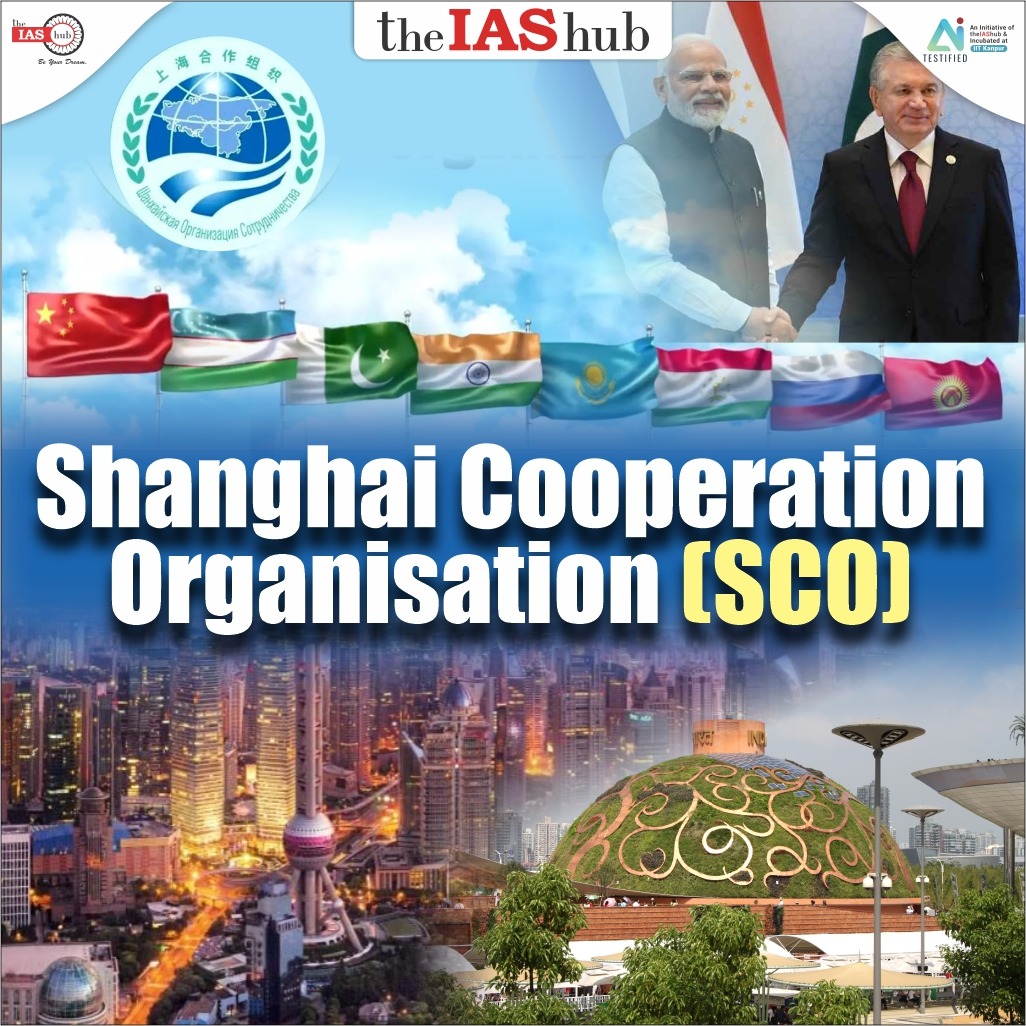The Shanghai Cooperation Organization (SCO) is a permanent international intergovernmental organization. It was established in June 2001 in Shanghai, China, by the Republic of Kazakhstan, the People's Republic of China, the Kyrgyz Republic, the Republic of Uzbekistan, the Russian Federation, and the Republic of Tajikistan.


Introduction: The Shanghai Cooperation Organization (SCO) is a permanent international intergovernmental organization. It was established in June 2001 in Shanghai, China, by the Republic of Kazakhstan, the People's Republic of China, the Kyrgyz Republic, the Republic of Uzbekistan, the Russian Federation, and the Republic of Tajikistan.
Membership
Challenges
China's riseConflicts Among Member Countries
Importance of the SCO for India
Highlights of the SCO Summit 2023
Indian Viewpoints
Conclusion
The SCO offers significant benefits to India, including economic cooperation, energy security, cultural exchanges, and counterterrorism efforts. However, the SCO's internal contradictions remain a cause for concern. While China's growing regional influence may impact Russia, the two countries have formed a closer partnership, maintaining strategic division in Central Asia. Together, they aim to deter Western powers from interfering in the region.


Refine your answer writing skills and elevate your UPSC preparation with personalized support and expert feedback.
Fill out the form to get started with the program or any other enquiries !








Are you dreaming of becoming an IAS officer? Then, IAShub can be your best guide. It is one of the Best IAS Coaching in Delhi. Many students who want to clear the UPSC exam join IAShub for learning. The institute gives both online and offline classes. Their teachers are experienced and helpful. They easily explain every topic. Students also get notes, tests, and tips to do well in the exam.
IAShub is in Delhi and is trusted by many UPSC students. It offers coaching for every part of the UPSC exam – Prelims, Mains, and Interview. The classes are simple and easy to understand. The teachers are experts and guide students in the right way. IAShub is also known for its helpful notes, test series, and answer-writing practice. IAShub is the best coaching in Delhi and also gives UPSC Online Classes. This helps students from any place in India to learn. The online classes are live and also recorded. So, students can watch them anytime. These classes cover the full UPSC syllabus.
Here are some important services provided by IAShub:
The UPSC Civil Services Exam has three parts:
This exam is tough, but with the right guidance, it becomes easy to manage. Students must study smart and stay regular.
IAShub supports students from the beginning to the end. It gives the right books, tests, and notes. The classes are easy to follow, and the teachers are always ready to help. Students get personal doubt sessions too. The test series and answer checking help students learn where they need to do better. Also, free study materials save time and money.
IAShub also guides students during the final stage – the interview. Experts take mock interviews and give useful tips. This full support makes IAShub one of the best IAS coaching in Delhi.